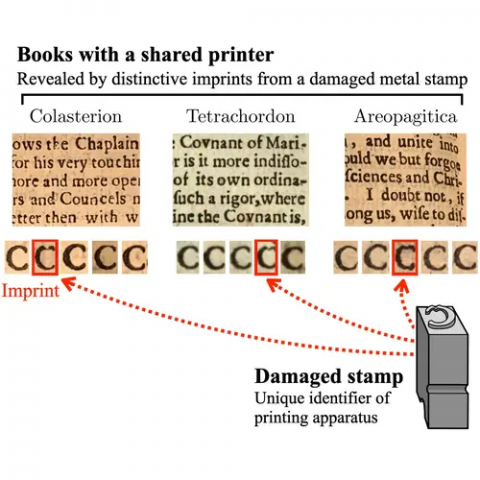
Like an algorithmic detective, AI can sleuth in places Sherlock Holmes could only imagine. This includes tracing literary artifacts from early modern London to their clandestine origins.
Taylor Berg-Kirkpatrick, an associate professor in UC San Diego’s Computer Science and Engineering Department (CSE), is deploying AI to examine English books printed between 1500 and 1800 in a project called Print & Probability. Led by Berg-Kirkpatrick and Max G'Sell and Christopher Warren from Carnegie Mellon University, the research team is hoping to uncover evidence linking controversial literary works – specifically, revolutionary pamphlets and essays on political philosophy – to printing operations, which often printed and distributed papers anonymously to avoid penalties under strict censorship laws.
Until now, attributing these historical pieces has been limited to manual investigations by analytical bibliographers. Berk-Kirkpatrick’s computational bibliographical analysis could solve these literary mysteries faster and on a broader scale.

Much like comparing fingerprints, the team’s Contrastive Attention-based Metric Learning approach identifies imprints of uniquely damaged metallic pieces of movable type and matches them across large collections of books. The matching system can identify similar damage across character image pairs, looking for subtle differences in glyph shapes while accounting for bends, fractures and inking variations typical to early printing.
Berg-Kirkpatrick and his colleagues explain how their AI method can compare type-imprint extractions across documents in Contrastive Attention Networks for Attribution of Early Modern Print.
Print & Probability is funded by grants from CMU Mellon Seed Grants, the National Science Foundation and the National Endowment for the Humanities.
Print & Probability project members also include: Nikolai Vogler, Samuel V. Lemley, D. J. Schuldt, Elizabeth Dieterich, Laura S. Deluca, Kari Thomas, Kartik Goyal.
--By Kimberley Clementi

